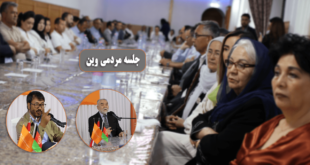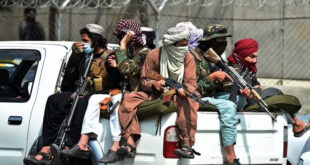In the past two years, the global community, including regional countries, has consistently urged the Taliban to form an inclusive government, respect human rights and minorities, and prevent international terrorist groups from operating. In the latest instance, the sixteenth summit of the Economic Cooperation Organization (ECO) was held in Tashkent without inviting the Taliban. The reason for not inviting the Taliban was cited as the lack of consensus among members and the non-official status of the group’s government. Additionally, some speakers at this summit once again emphasized the necessity of establishing an inclusive government with the participation of all ethnicities and religions in Afghanistan.
Furthermore, in the recent 2+2 Delhi Dialogue held last Friday with the participation of the foreign and defense ministers of the United States and India, the Taliban was also urged to respect human rights and minorities and, in accordance with their commitments, not allow individuals or groups to threaten the security of others using Afghan soil. Earlier, members of the Group of Seven (G7) and the United Nations Security Council had also called on the Taliban to respect the rights of women and minorities.
The Taliban’s response to the repeated demands of the world and the region for flexibility has been uncompromising, marked by an escalation of human rights violations, increased restrictions on women, and a rise in violence against minorities. The Taliban consider their government all-encompassing and have not acquiesced to the requests of the region and the world. It seems that the dual approach of the world and the region in dealing with the Taliban is a key factor in their inflexibility. In an era where the administration of a poor and globally dependent country cannot afford isolation, the dual behavior of the region and the world has given the Taliban the opportunity to stand firm and resist.
While the Taliban is not officially recognized as the legitimate government of Afghanistan by any country, in practice, some countries in the region and beyond engage positively with this group. With the support of various countries, the Taliban has gained control over certain representations of Afghanistan and carries out official visits to different countries.
A recent report by the Special Inspector General for Afghanistan Reconstruction (SIGAR) indicates that over the past two years, the United States has remained the largest financial supporter of Afghanistan, contributing over $7 billion in humanitarian sectors. On the other hand, as the majority of the world’s financial aid to Afghanistan is channeled through the central bank under the Taliban’s administration or in coordination with this group, repeated reports have been published on the Taliban’s misuse of these aid funds. In other words, despite the fact that the Taliban is officially an illegitimate and isolated government, with its leadership members listed on the UN blacklist, economic assistance to Afghanistan is flowing into the hands of the Taliban, and the Taliban is engaging as a governing entity in regional and some global interactions.
Therefore, the dual behavior of the global and regional community has allowed this group to boldly and decisively implement its authoritarian plans, violate human rights and minorities, and support international terrorist groups. From the perspective of the Taliban, the requests and statements aligning with human rights and the formation of an inclusive government are merely formalities with little substance.
 حزب شهروندان افغانستان وبسایت رسمی حزب شهروندان افغانستان
حزب شهروندان افغانستان وبسایت رسمی حزب شهروندان افغانستان



